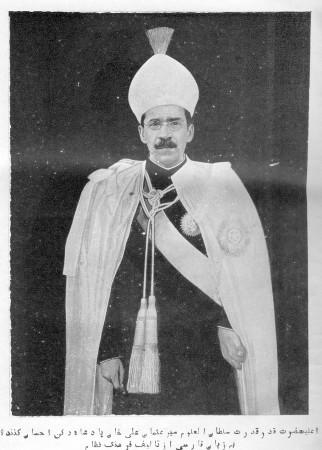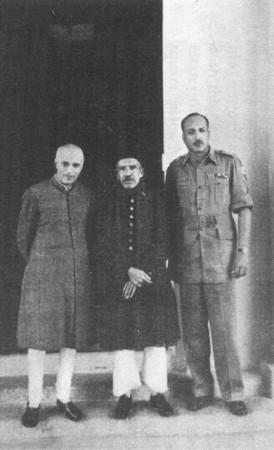
The UK court on Wednesday ruled in favour of India and the family of the Nizam of Hyderabad, in the 70-year-old legal dispute involving funds worth £35 million held with a London bank.
The descendants of the Nizam of Hyderabad, Prince Mukarram Jah and his younger brother Muffakham Jah, in collaboration with the Indian government had been fighting a legal battle against the Pakistan government over the rightful inheritance of funds worth £35 million.
The case involving the funds, held with NatWest Bank in London, reached a critical stage in the UK Royal Courts of Justice in June.
In the recent judgement, the "Nizam VIII was beneficially entitled to the Fund and those claiming in right of Nizam VII — the Princes and India — are entitled to have the sum paid out to their order," Royal Court judge, Justice Marcus Smith was quoted as saying by PTI.
On Pakistan's claims over the funds, the verdict stated: "Pakistan's contentions of non-justiciability by reason of the foreign act of state doctrine and non-enforceability on grounds of illegality both fail."
Paul Hewitt who has represented the Nizam VIII stated: "We are delighted that today's judgment recognises His Exalted Highness the VIII Nizam's rights to funds which have been in dispute since 1948," adding that the prince who has seen the dispute since he was a child and is in his 80's was able to see the issue get solved in his lifetime.
Known as the Hyderabad fund, the initial amount deposited in the Royal Bank of Scotland and the National Westminster Bank was £1 million. The amount is believed to have been transferred by the Nizam of Hyderabad, Mir Osman Ali Khan, to the high commissioner in Britain as an aid to newly-formed Pakistan in 1948.
India has stated that the Nizam sought for a return of funds after he was asked to either join Pakistan or stay with India in 1948. The Nizam had earlier claimed of forming a separate kingdom within the British Commonwealth of Nations.

The amount was then deposited to the bank account of the High Commissioner of Pakistan, Habib Ibrahim Rahimtoola, and NatWest held onto the amount.
According to reports, a document of the case reveals that the transfer of funds took place during the military operation in September 1948 when the Indian troops invaded the princely state.
One of the other arguments that were made was that the amount was deposited by Hyderabad royal officials three days after the state acceded to India on September 17, 1948, which strengthens India's claims over the deposit's ownership.
Pakistan's argument
Pakistan in its claims used what is known as the "Arms of Money" argument in the legal proceeding, stating that the money was originally given to Pakistan as a monetary exchange for procuring/facilitating the supply or transportation of weapons as well as for "safeguarding" measures to keep the funds outside India's ownership, reported PTI.
Pakistan argued that since the money was a monetary exchange between governments and the annexation of Hyderabad was an unlawful act, it had legal ownership over the fund.
While the court acknowledged the arguments, the judge had stated that there wasn't much evidence that sustained its claims that the funds in question were a monetary exchange for the supply of arms by the Nizam ahead of the historic annexation.
It also stated that while the funds were transferred to Pakistan for safeguarding against India's claims following 1948, Justice Smith said that the argument points to trust on Pakistan's safekeeping rather than complete ownership of the funds itself.









!['Had denied Housefull franchise as they wanted me to wear a bikini': Tia Bajpai on turning down bold scripts [Exclusive]](https://data1.ibtimes.co.in/en/full/806605/had-denied-housefull-franchise-they-wanted-me-wear-bikini-tia-bajpai-turning-down-bold.png?w=220&h=138)



